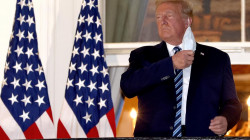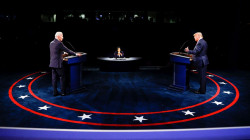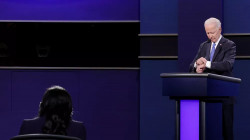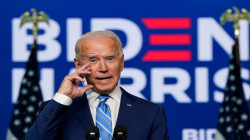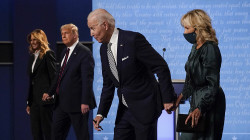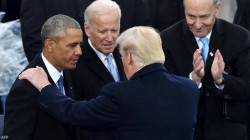Who is Iraq betting on.. Trump or Biden?
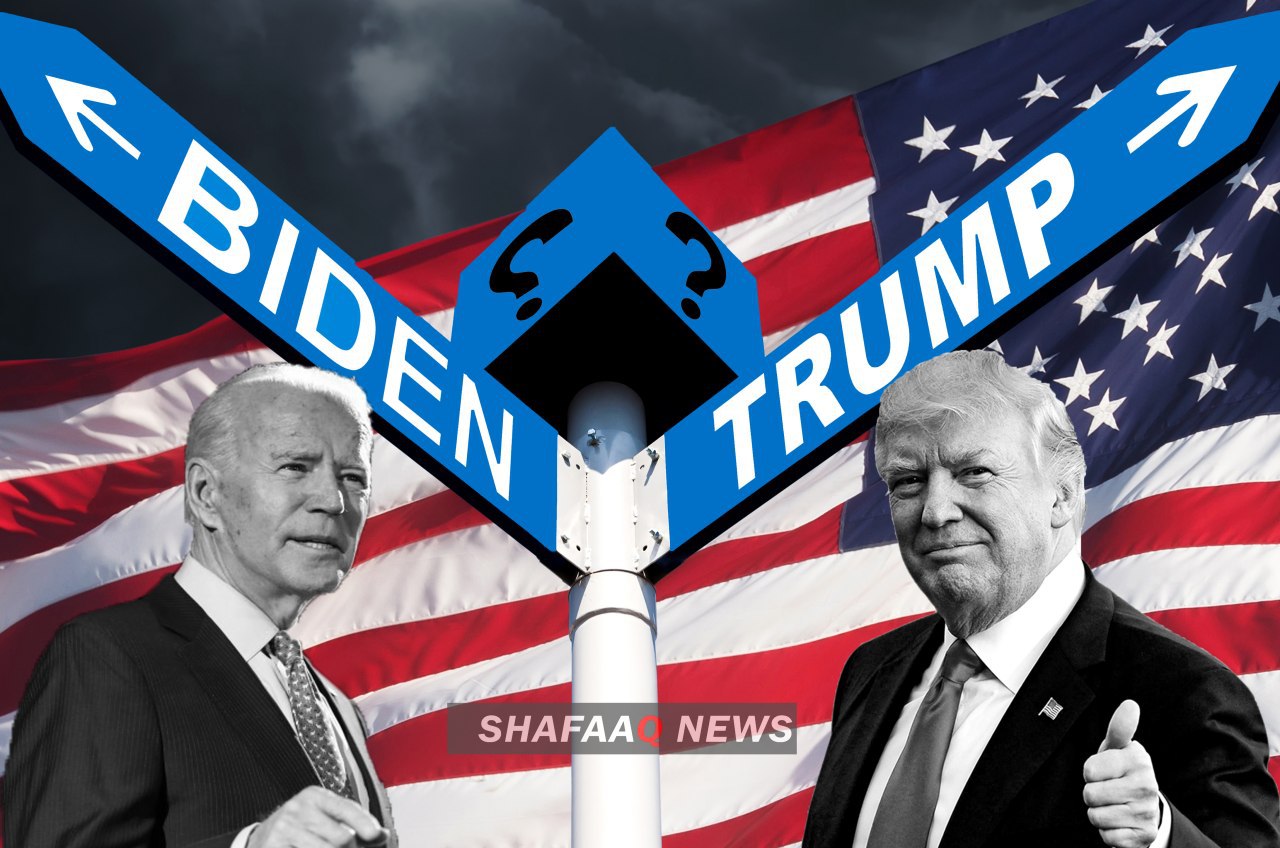
Shafaq News / Iraq is closely scrutinizing the US presidential elections on November 3rd to explore any shifts in the U.S. policy toward Iraq. However, by looking at Trump’s four years in office or Joe Biden’s eight years with former President Barack Obama, this is still unpredictable.
It is only normal for Iraq to find itself bewildered. Since 2003, Democrats and Republicans have alternated in the White House and Congress, and Baghdad -no matter who is in power in Baghdad or Washington- could not build a clearly defined relationship with Washington; as it was always influenced by Iraq’s internal and regional changes, as well as the policy shifts in the White House, from George W. Bush, through Barack Obama, to Donald Trump.
American policies -particularly during the Cold War era- have always been subject to major strategies pursued over many years to achieve goals that serve the international conflict. However, in the years that followed, U.S. policies seemed more subject to bipartisanship disputes and the whims of the White House's master himself.
The U.S. view of the Middle East was based mainly on the safety of oil supplies from the region to the U.S. market, given the great U.S. dependence on these energy resources. This has changed over the past years as this dependence has been significantly reduced, and the United States has become one of the largest oil producers in the world, found many alternative exporting countries and increased production of shale oil (an unconventional oil produced from oil shale rock fragments by pyrolysis, hydrogenation or thermal dissolution); making it relatively relaxed in its oil hunger and rearranging its priorities.
According to observers and what has been confirmed by regional events in the past decades, the near-constant in U.S. foreign policy toward the Middle East has been Israel and its security. There is nothing above that in the American interest, whether in the White House or the Congress.
Iraq’s importance has continued to oscillate in terms of events, both in "Saddam's era" and after 2003. If it is possible to go back to that year, the disagreement between Trump and Biden was in the position of the American invasion, and while Biden supported George W. Bush's attack, Trump -who had not entered the arena of politics at the time- criticized him and opposed him more than once.
This point is one of the issues that Trump and the activists of his presidential campaign used to undermine their Democratic rival as a supporter of the invasion of Iraq; an idea that seems no longer popular among Americans given the country's casualties in this war. Trump came to establish a basic offensive point that his predecessors to the positions of power in the U.S. have implicated the country in the endless Middle Eastern wars and he is trying to mend the chaos they left, including Obama, Biden and Hillary Clinton.
With Trump’s recent decision to reduce the American troops, He wants to look as if he is fulfilling his promises to drag U.S. from the Middle East’s chaos while trying to pull this card out of Biden's hand. Biden said few weeks backward that if he is elected as a president, he will "carry out a withdrawal but he will retain a small presence of American troops in Iraq and Afghanistan. However, the problem is that we still have to worry about terrorism and ISIS".
Undoubtedly, Biden is more experienced in the Iraqi and Kurdish affairs than his Republican rival, who complains about the futility of intervention and the little economic gain.
Biden has visited Iraq about 24 times when he was Obama's deputy, who assigned him to follow up on Iraq and organize the military withdrawal route. He also maintains long-standing ties with many Iraqi and Kurdish officials, particularly Masoud Barzani.
Trump recorded a brief and secret visit to Ain Al-Assad airbase in Al-Anbar two years ago to congratulate U.S. soldiers on New Year's Eve. Trump did not meet with any Iraqi officials, which at that time, provoked a lot of uproar and criticism. On the contrary, in his meeting with the current Iraqi Prime Minister Mustafa al-Kadhimi in August, he tried to show the media the strength of his relation with his Iraqi guest and his admiration for him. Besides, that was a new occasion for him to assert his intentions to schedule a U.S. military exit within three years.
It is obvious that there are those in Iraq who consider choosing between the two men to be a test between “the lesser of two evils". In the absence of a real Iraqi vision and strategy, anticipation becomes the master of the situation for Iraqis, politicians and citizens. Perhaps the most sensitive and negative point over the past decade is viewing Iraq as an arena to confront Iran's regional influence -or clash with it, with few modest attempts to deal with it completely outside that vision.
Even if U.S. decided to reduce its troops in Iraq, which swings between the U.S. election pledges of the two men, many observers saw the move as a tactical initiative to reduce the risk of missile attacks carried out by pro-Iranian groups on American bases and facilities in Iraq; it also confirms a certain U.S. blunder, since the decision to assassinate Qasem Soleimani and Abu Mahdi Al-Muhandis on Iraqi soil at the beginning of 2020, did not adequately take into account the military and political reactions that might take its tolls on Iraq, America and Iran.
China is the nightmare that deprives trump of sleep nowadays. Trump, like Biden, is also compelled to take into account the U.S. national security strategies prepared by the Pentagon over the past years, which considers the real danger to global American interests is no longer confined to the Middle East or Iraq; but toward the far east, where China and then Russia is.. Therefore, the military and financial priorities of the Pentagon have focused on dealing with the potential risks from the two countries, which is also an important electoral issue that Trump recently expressed when he told the Americans, "if Biden was elected, you will have to learn Chinese".
In his 15 years in the United States’ Senate Committee on Foreign Relations, including twice chairing the committee, Biden has shown a special interest in the Kurds, particularly in Iraq, as was indicated by the 24 visits.
Biden believed, “if the United States could not put the idea of federalism on the right track, then we have no chance of reaching a political settlement in Iraq. Without which, there is no chance of withdrawing without causing chaos behind”.
If Trump is re-elected, trump's interest in Iraq will continue to decline as his overall interest in the region declines unless it serves -as we have indicated- Israel, arms’ sales, or Arab money pumping into the U.S. economy.
If Biden takes office, he may activate his Iraqi experience to develop a more comprehensive approach to Iraq’s crisis. It is unclear whether he will regain his controversial proposal to divide power in Iraq federally, which he put forward some 15 years ago, similar to the division of power in Bosnia.
Biden's arrival, at least as he had recently promised, will bring Washington back to its nuclear commitments with Iran, from which Trump withdrew two years ago to subject Tehran to the terms of a new deal. However, Biden might also consider that Trump's sanctions have effectively weakened Iran's domestic and regional position -including in Iraq, which could tempt him to use the position to require Washington to return to the nuclear deal by making additional concessions, which is a very serious test itself.
Iran, which does not hide its desire to get rid of Trump, is placing high bets on Biden to win the election to build their case; Whether to go further or demonstrate diplomatic flexibility, depends on Biden's intentions. This is another test for Iraq as one of the possibilities of bargaining -or confrontation- between the two parties.
Therefore, in short, cautiously and closely monitoring the situation is Iraq's best bet.
